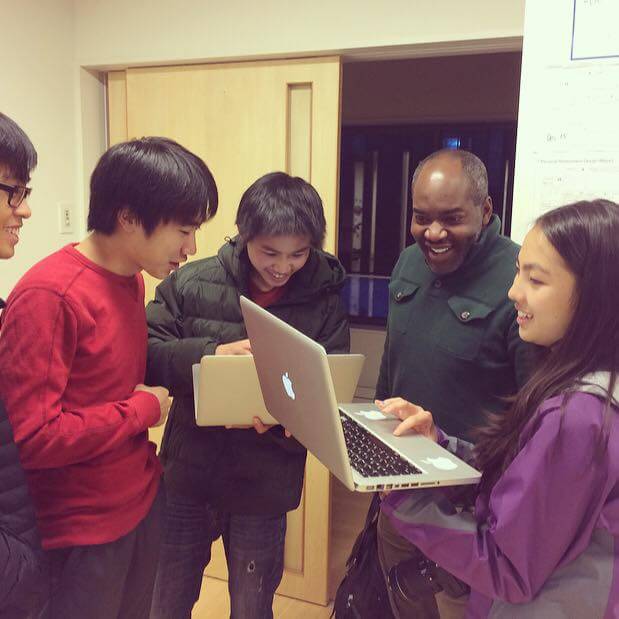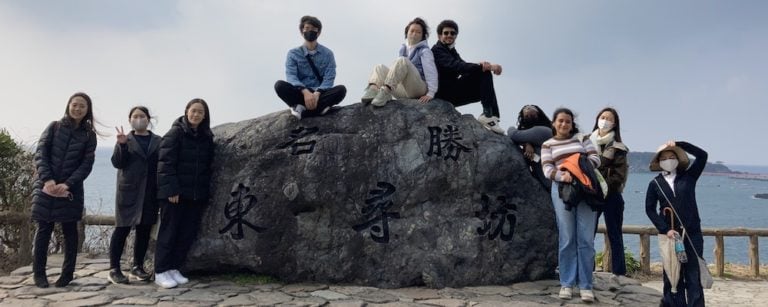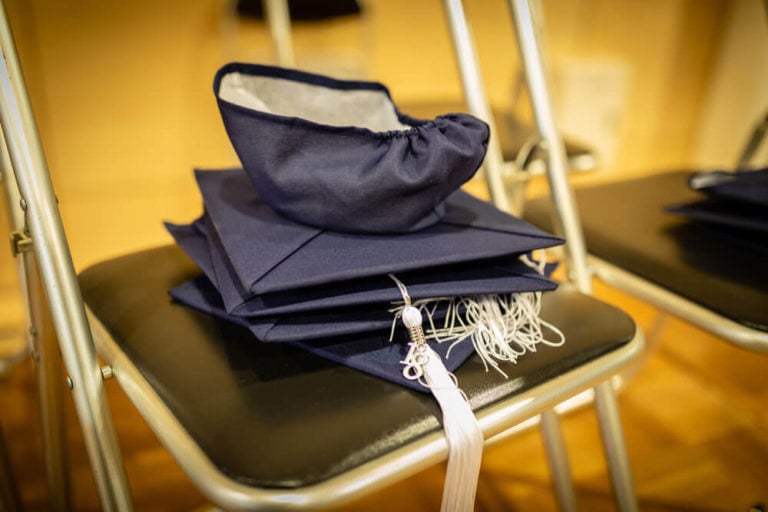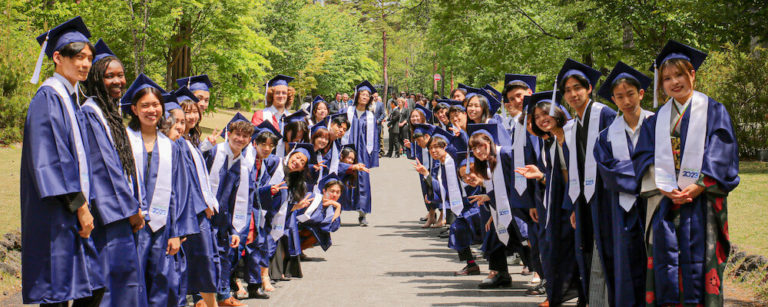This post is Part 1 of a full-length article about ISAK entitled Learning Through Shared Ideas, which was originally published in Japanese on Nikkei Business Online – May 25, 2015. To read the other 3 sections, click on the links below:
“Learning through Shared Ideas”
– Design Thinking Enables Students Improve Problem-solving Skills and Teamwork
• Part 2 – What is The Best Time to Go to Bed?
• Part 3 – No One’s Opinion is Better Than Anyone Else’s
• Part 4 – IDEO x ISAK Special Design Thinking Workshop
What Is Important for a Head of School?
In April 2015, ISAK received authorization to offer the International Baccalaureate Diploma Programme (IBDP) curriculum. The IBDP is an international educational program implemented in more than 140 countries worldwide. ISAK is the first high school in Japan in which all students will study the IBDP curriculum in grades 11-12.
ISAK has already been accredited by Japan’s Ministry of Education (MEXT), so ISAK students will receive a Japanese high school diploma when they graduate. With the addition of the IBDP, ISAK students will enjoy a wider range of opportunities for enrollment at well-known universities worldwide. Achieving IB authorization is just one more goal that Chair of the Board Lin Kobayashi and the rest of the team have achieved this year.
How does Rod Jemison, ISAK’s Head of School and fellow ISAK leader with Ms. Kobayashi, view his role in the process?
“My greatest responsibility is to ensure that all of the students, faculty and staff at ISAK are carrying out the mission of the school,” emphasizes Mr. Jemison. To fulfill that duty, he prioritizes daily communication, including regularly scheduled meetings. Each week, he meets for an hour with individual faculty members. He also holds a combined meeting with all faculty members four times a week, as well as twice-monthly meetings with ISAK’s support staff. Even on the day of this interview, he had already attended three meetings before the interview began.

Meetings with faculty can cover topics ranging from updates on class content to general concerns and teaching-related issues. Jemison and faculty also discuss which training programs might be useful for professional development.
Since ISAK is a very small community, Jemison feels that it is essential to get feedback directly from the faculty. “I think it is important for me to hear the opinions of our community members, including how I am doing as Head of School, and what we can do to improve.”
Jemison mentions that he has made adjustments to his work priorities based on feedback from the meetings.
At one meeting, a staff member recommended that Jemison spend more time on campus. This came at a time when Jemison was making frequent overseas trips to recruit new students. Student recruitment is a priority at ISAK, but Jemison also had to consider his role as the leader of the school. Now that student recruitment for ISAK’s second class of students has drawn to an end, he has increased his on-campus meetings with faculty and staff, and also sits in on several classes per day.
“The best part of my day is having lunch with our students. I have my own family, so I usually eat dinner at home, but I make an effort to eat breakfast or lunch with the students as much as possible. On Tuesdays, we have Family Dinner, which is an opportunity for all of the faculty and staff to eat dinner with the students. My wife and daughter participate in that as well.”
This is the first time for Jemison to run a full-boarding school, and he has learned how time-consuming the job can be. However, despite the long hours, he states, “While I am thinking about our students and the school 24 hours a day, it’s an amazing experience, and I am really enjoying myself.” Nevertheless, he adds,“ I have also come to realize that this job requires more patience than I had anticipated.”
This applies to the faculty as well as the Head of School. For example, the students’ rooms can get very messy, and the students do not always clean up as much as they should. This is a common issue at any school, and the easy solution would be to criticize the students and make them obey the rules. However, a different approach is used at ISAK.
“We adults have to use patience when working with the students. It’s important for us to direct the students in a way that they come up with their own solutions. As Head of School, I always have to be considering what is most important for the students. We try to think about what is best for the students in each situation. Rather than tell them what to do, we let them make their own decisions.”
Jemison points out that in today’s world, in which globalization has led to the co-existence of diverse opinions, it’s not enough for parents to simply tell children what is right and wrong.
This post is Part 1 of a full-length article about ISAK entitled Learning Through Shared Ideas, which was originally published in Nikkei Business Online in Japanese – May 25, 2015. To read the other three sections, click on the links below:
• Part 2 – What is The Best Time to Go to Bed?
• Part 3 – No One’s Opinion is Better Than Anyone Else’s
• Part 4 – IDEO x ISAK Special Design Thinking Workshop
About Nikkei Business Online:
NBO is an online platform providing compelling original content to help guide top and middle managers of companies in Japan. The website has 1.62 million subscribers and receives 30 million page views each month.
※本記事は、日経ビジネスオンラインの掲載記事をISAKが翻訳したものです。(転載許可をとっています)





